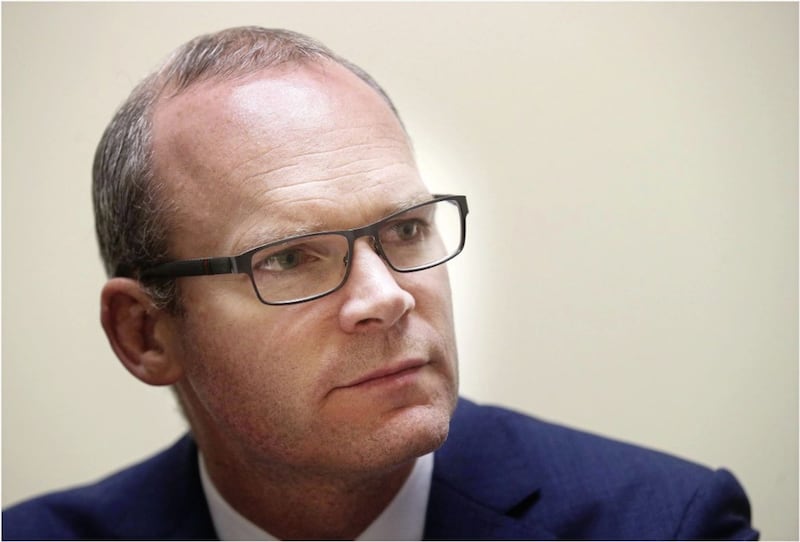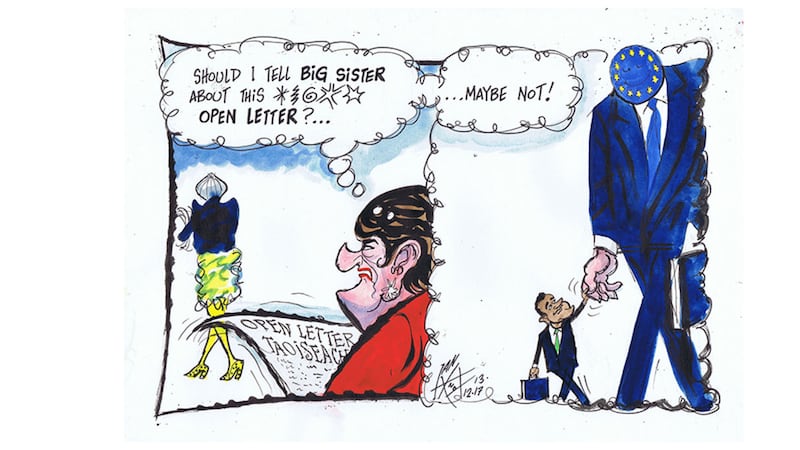THERE was a sort of seminar-cum-launch of a new book on the north last week.
It's The Search for Peace in Northern Ireland: Sunningdale, by a distinguished retired official in the Department of Foreign Affairs in Dublin, Noel Dorr.
Dorr was engaged with the north one way or another from 1969 until his retirement in 1995.
He was personally closely involved with the documents and negotiations leading up to Sunningdale.
However, the book covers a wider ambit than simply Sunningdale and examines policy development from the seventies to the nineties.
In that respect it's very instructive. It should be required reading for all current and future civil servants in the Northern Ireland Office, not to mention the know-nothing proconsuls sent here. There are many lessons to be learnt.
As the streets in Derry and Belfast heated up with Orange fervour in the summer of 1969 the Irish government sought to warn the British government of impending trouble.
Paddy Hillery had just replaced Frank Aiken as Minister for External Affairs. You have to laugh when you hear British and unionist politicians accusing Simon Coveney of being 'aggressive' about Irish unity.
Coveney sounds like Mother Teresa compared to Aiken, former IRA chief of staff and commander of the Fourth Northern Division.

Anyway, Hillery was receiving messages from northern nationalists about the Apprentice Boys march in Derry planned for August 12.
Instead of the usual dozen to 20 bands there was talk of a major demonstration with as many as 70 bands.
Now, while an Orange march in Belfast or Portadown used to be a 'home match', an Apprentice Boys march in Derry was always an 'away match'.
Hillery had an unpublicised meeting with his counterpart the British Foreign Secretary Michael Stewart to raise concerns about possible serious disturbances.
He told Stewart Derry was a "powder keg" and asked for the parade to be banned or limited in size and sensitively policed.
Stewart was, as Dorr writes, "far from receptive".
He said it was a matter for the Stormont government and besides, "there is a limit to the extent to which we can discuss with outsiders - even our nearest neighbours - this internal matter".
Stewart was even concerned that people might think matters in the north were discussed at the meeting so the press was told they discussed Nigeria and European integration.
Stewart was following the advice of his officials who warned that Hillery might want to "establish that the government of the Irish Republic has a right to consultation in Northern Ireland matters. It is important that he should be left in no doubt that this is not the case".
The British government ignored the Irish warnings. A gigantic Apprentice Boys parade followed by thousands of loyalist louts pranced through Derry on August 12 and as they say, the rest is history.
No doubt unionists would have cheered if they had known the British government's response to Hillery.
They wouldn't have been so happy had they known that the same British government by February 1969 had prepared a draft bill for the introduction of direct rule in the north.
The events of October 1968 to January 1969 had convinced them the unionist government had lost control.
For some reason some unionists tend to think British governments are on their side but others know the opposite is true and that the words of 19th century prime minister Lord Palmerston still operate.
To paraphrase, 'Britain has no friends, only interests.'
To unionists it seems incredible, laughable and far-fetched to suggest that their best friends are in Dublin who share the same objectives as unionists - that is stability, security and prosperity for all the people on this island.
Yet it's obvious. All evidence and experience shows that the more influence Dublin governments have on British policy the better for all on this island.
The only progress there has been in the past 50 years has been when London and Dublin work together. You might think the British should know but it's the opposite.
It's commonplace to quote Talleyrand on the Bourbons about the unionists: they have learnt nothing and forgotten nothing.
In the case of British politicians another version is appropriate. They have learnt nothing and forgotten everything.









